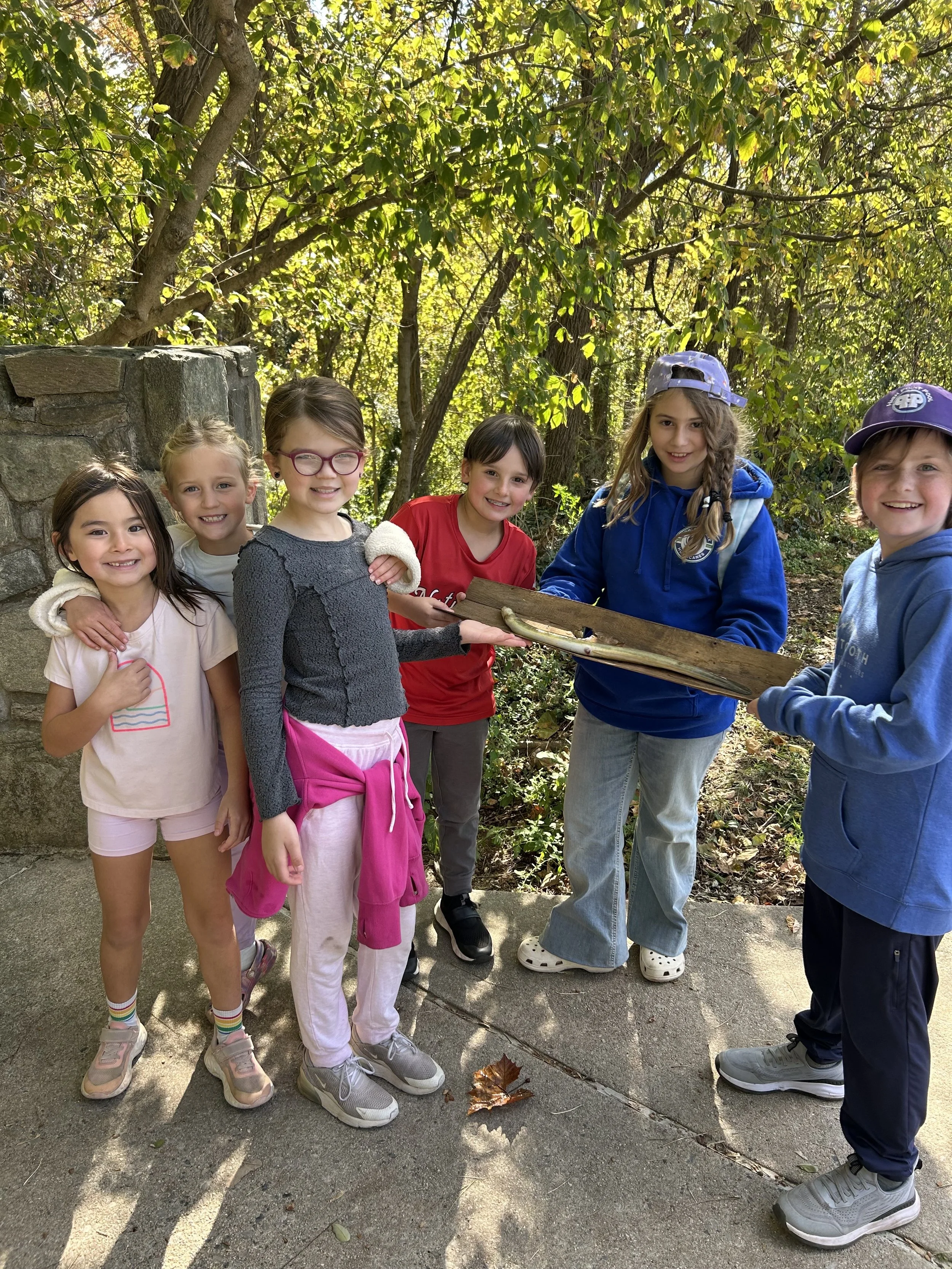Defying Expectations: TVS Learners Prove What Children Are Capable Of
written by Abby Shaw and Chloe Shoff
At The Village School, we hold a core belief that young people are capable of far more than what society gives them credit for. But every time our learners venture beyond TVS’ campus, we are reminded that not everyone holds that belief.
Our elementary studio recently spent the day at a local park. When we first reached out to the park’s aquarium and inquired about a squid dissection for a group of 2nd-6th graders, their initial response was to allow the older learners to dissect while younger learners could observe. At first glance at the email, we were frustrated and concerned, thoughts spiraling in our minds. How will we explain to our younger learners that they wouldn’t be able to participate in the dissection because they’re “too young”? It sent the message that children weren’t capable of doing challenging things.
But we know young people can and should do challenging things. We couldn’t give up and let our younger learners miss out on an incredible learning experience so we pleaded for them to accommodate all ages, and they graciously did. Every learner who wanted to got to participate in a squid dissection. It was a sight to behold–the awe and wonder, and somewhat disgust, from 32 children as they explored the parts of a squid, even pulling out the spine, only to discover it looks like a thin piece of plastic. As guides, we felt pride as we watched our learners prove to us and to these adults that when we believe in them and give them big opportunities, they will rise to the occasion.
Our learners' demonstration of capability didn’t stop at the dissection–it extended far beyond. As we began to leave the aquarium, some learners told the staff members about an eel they had spotted from the bridge we crossed in the morning. The staff members gave an “oh wow” or “how cool”, not knowing what would follow in the next 45 minutes.
As free exploration of the park began, this group of learners eagerly wanted to seek out the eel. They marched down a steep path to the creek, and before a guide could catch up, the learners had found the (very dead) eel. They jumped into action, quickly finding a piece of wood to use as a ‘stretcher’ and ran the eel up to the aquarium, making siren sounds along the way to clear the path.
When they finally arrived at the aquarium, eel in tow, the learners ran up and excitedly proclaimed “Look what we found!” The staff members were instantly impressed, not just by the eel, but by how quickly it had been found and brought back. Phones came out to capture the moment, and the staff praised their tenacity and teamwork. It was then that we saw their perception shift. They didn’t see children who were incapable; they saw curious, determined learners who had set out on a mission and accomplished it.
We share this story because it is not the only time we have seen people look at our learners and doubt their abilities. We’ve had librarians question learners’ reading ability, museum docents assume poor listening skills, and other parkgoers show disdain at learners taking risks. But how can we blame them when this is what our society has trained us to believe that protection means limitation, rather than preparation. “Children should be seen and not heard,” right? Well, we choose something different: children should be seen, heard, believed in, valued, challenged, encouraged, and so much more.
When TVS learners venture off campus, they show the world—bit by bit—that children are capable of so much more than they’re often given credit for. Each experience allows them to demonstrate independence, confidence, and curiosity in a real-world setting. We are fortunate to belong to a community that not only supports these opportunities but genuinely celebrates the growing autonomy of children.

